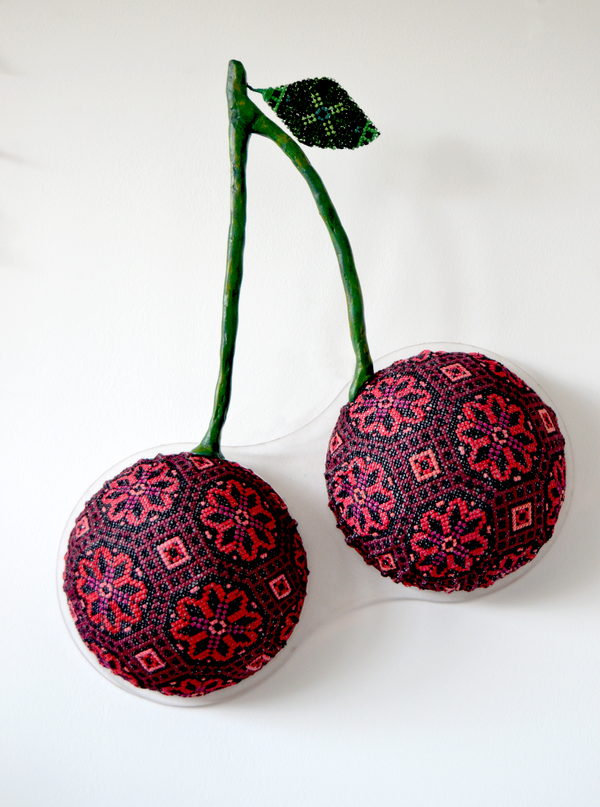
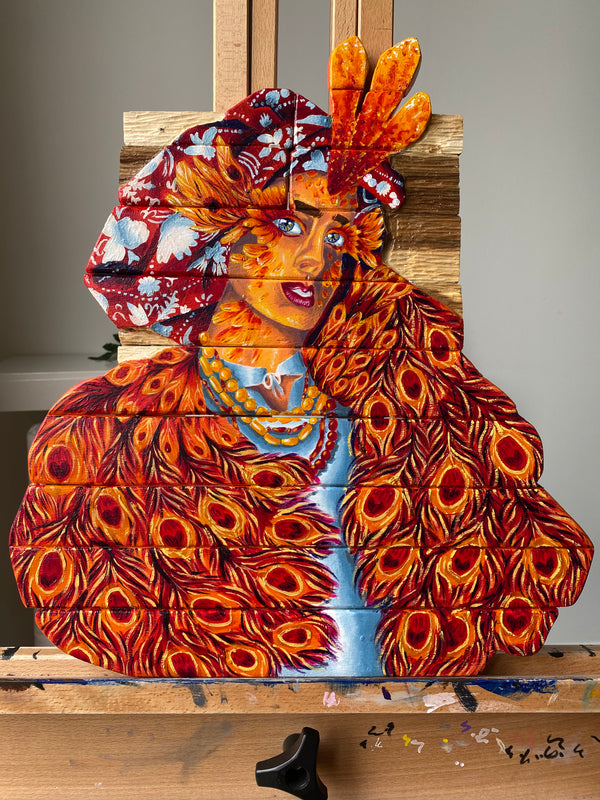
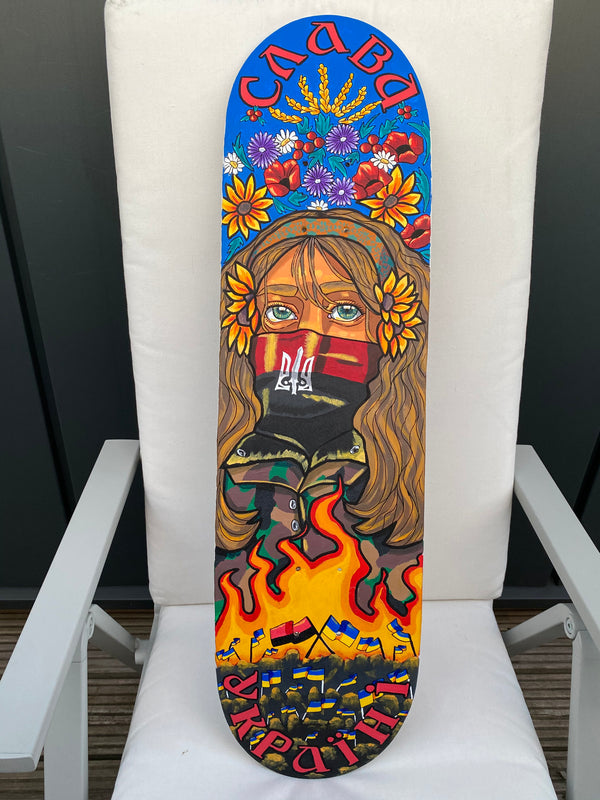
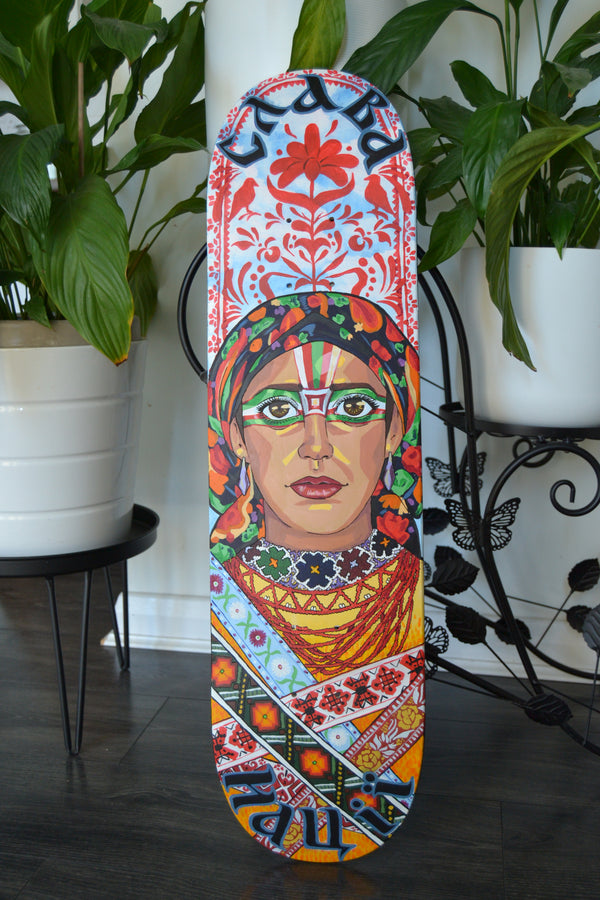

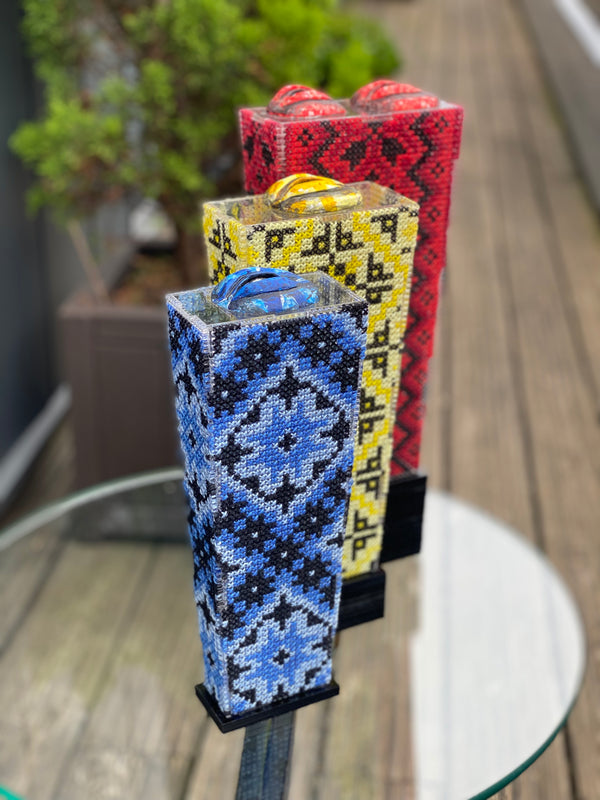
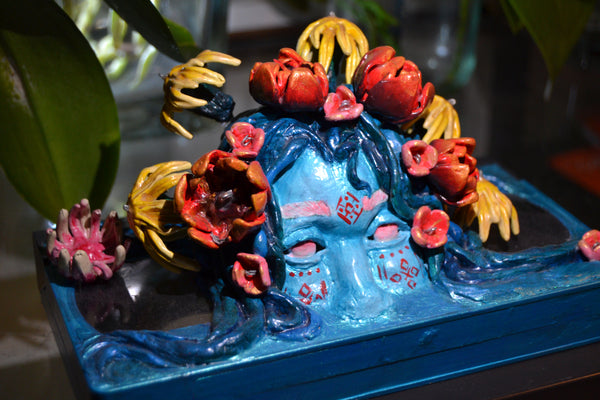
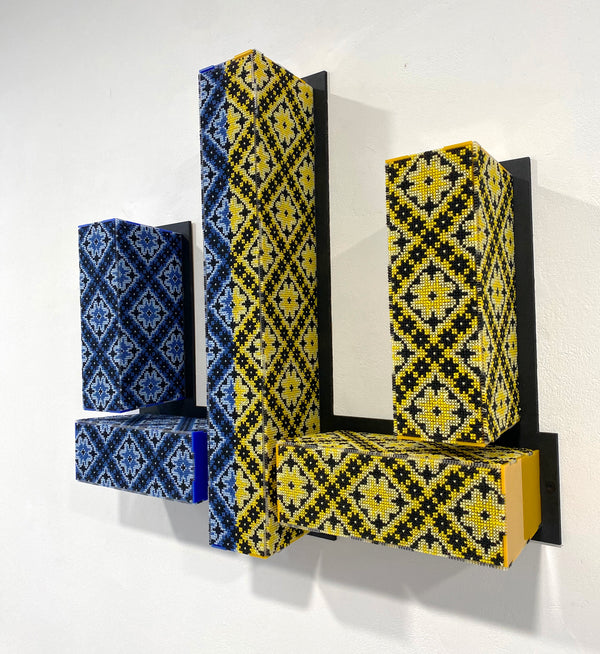
ABOUT THE ARTIST
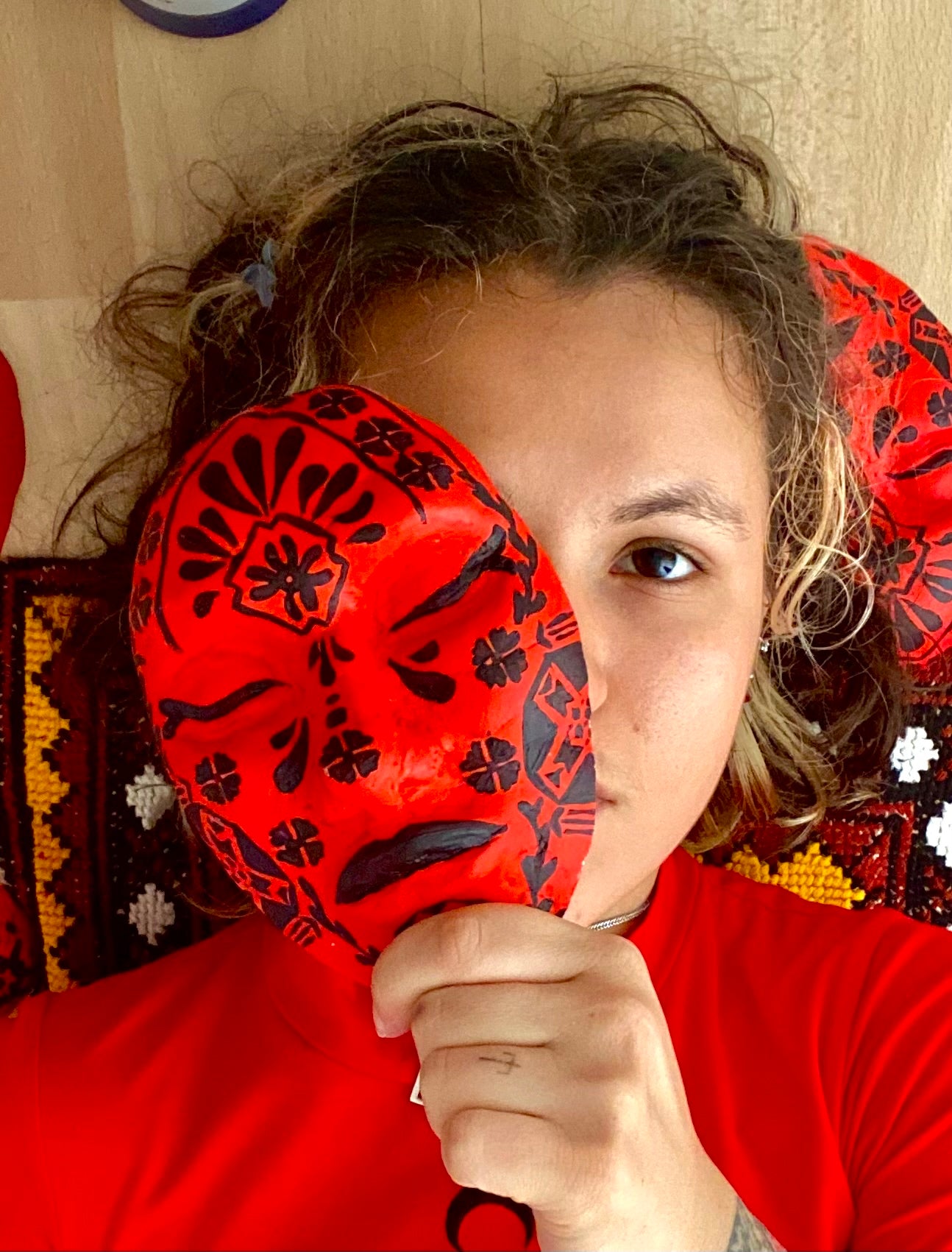
Anastasia Mykolayska Shutka is a British Ukrainian artist, born in London (2000) to Ukrainian immigrant parents. Throughout her childhood she had an interest in art which was encouraged by her mother who herself had been a crafts-person. Growing up she was surrounded by craft, her grandmother’s did traditional embroidery and knitted clothing, her mother designed shoes and much of her family enjoyed painting and model making. Being exposed to so many practices she finds that she cannot stick to one medium, she loves to explore and seek what best fits the story she is trying to tell.
Anastasia would attend Ukrainian school learning about history, culture, traditions, language and frequently flying to visit her family in Ukraine. However, her interest in her culture would only arise after the events of 2014 and the subsequent hybrid-war, it made her question what had led to Ukraine’s current situation. It was also a clear realisation that having been raised in the UK she felt distant and disconnected to her heritage which made her take the initiative to research deeper than what was taught in her Saturday school.
This new focus manifested itself when she began studying Fine Art at the University for the Creative Arts where she could explore mixing traditional techniques such as embroidery with technology such as laser cutting. Her art now, influenced by traditional, ethno motifs has a deep initiative in exploring and connecting with her culture from both Western and Eastern Ukraine, which is a large cultural rift in and of itself. Western and Eastern Ukraine significantly differ and they have their own traditions and mindsets which can often clash which is something that Anastasia tries to bridge in her work. She feels that her practise now is a necessity to stay connected and to inform others of her diverse culture.
Her current collection focuses on the relationship between traditional practices and modern technology. The use of a laser cutter allows her to create forms and use materials that would not otherwise be used for embroidery and folk patterns. The use of traditional embroidery and patterns allows for her to bring an old art form into the modern age to understand what it must’ve felt like to do it in generations past. Modernising and changing them to suit her own artistic themes allows for them to find a new place in an ever growing world whilst also connecting to people globally.


